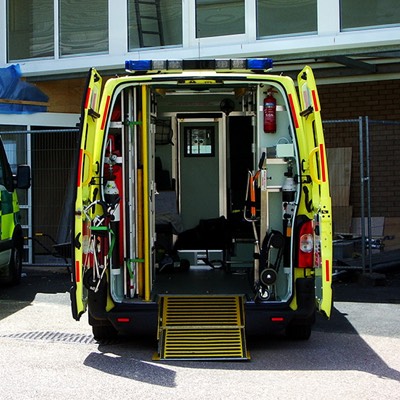News
Smartphones among digital tech transforming London’s NHS
Digital technologies – from smartphone apps that help people successfully manage their diabetes, avoid “no shows” at hospitals, to tools that save time for nurses and paramedics – are beginning to transform London’s NHS services.
For the first time, NHS providers in London have revealed the extent to which smartphones, the Internet and Bluetooth are improving patient care and look set to save the capital’s NHS millions each year.
Guy’s and St Thomas’ NHS Foundation Trust expects to save £2.5 million each year by reducing missed appointments through an app called DrDoctor which gives patients much more say in selecting a date and time of their choice, resulting in “no show” rates falling by 40%.

Health chiefs are also using smartphones to tackle a looming health crisis with London boroughs tackling type-2 diabetes.
Programmes run by the North West London Collaboration of Clinical Commissioning Groups, covering eight boroughs, are successfully tackling diabetes through digital technology. OurPath links an app to a fitness wristband and 3G connected weighing scales to provide clients with realtime updates that help tackle type-2 diabetes, and in studies has achieved an average 5.3kg weight loss, while Oviva has seen more than 200 people complete the online programme with an impressive 90 per cent completion rate.
Dr Tom Willis, diabetes clinical lead for the Collaboration, said: “GPS are by nature very busy, naturally sceptical and want evidence.”

The London Ambulance Service, which was praised for its speedy and high quality care to the victims of the recent London Bridge terrorist attacks, is a key adopter having helped adapt the Perfect Ward audit tool specifically for its ambulance stations. The city-wide service has also developed Perfect Kit Prep and cuts out medicines paperwork for faster ambulance care, these are being implemented across over 70 ambulance stations in the capital.
In Chelsea and Westminster another tool links a stoma bag, used to collect faeces and urine for more than 13,000 people who undergo surgery each year nationally, through Bluetooth to users’ smartphones. A discrete device called ostom-i Alert Sensor, developed by a patient innovator, provides alerts when the bag is full so users have more control over their daily life and, importantly, greater dignity.
A new report ‘Digital Leadership in London’s NHS’ reveals that within eight months the 31 start-ups and digital companies backed by an organisation called DigitalHealth.London have achieved strong uptake within the capital.
Download the report here